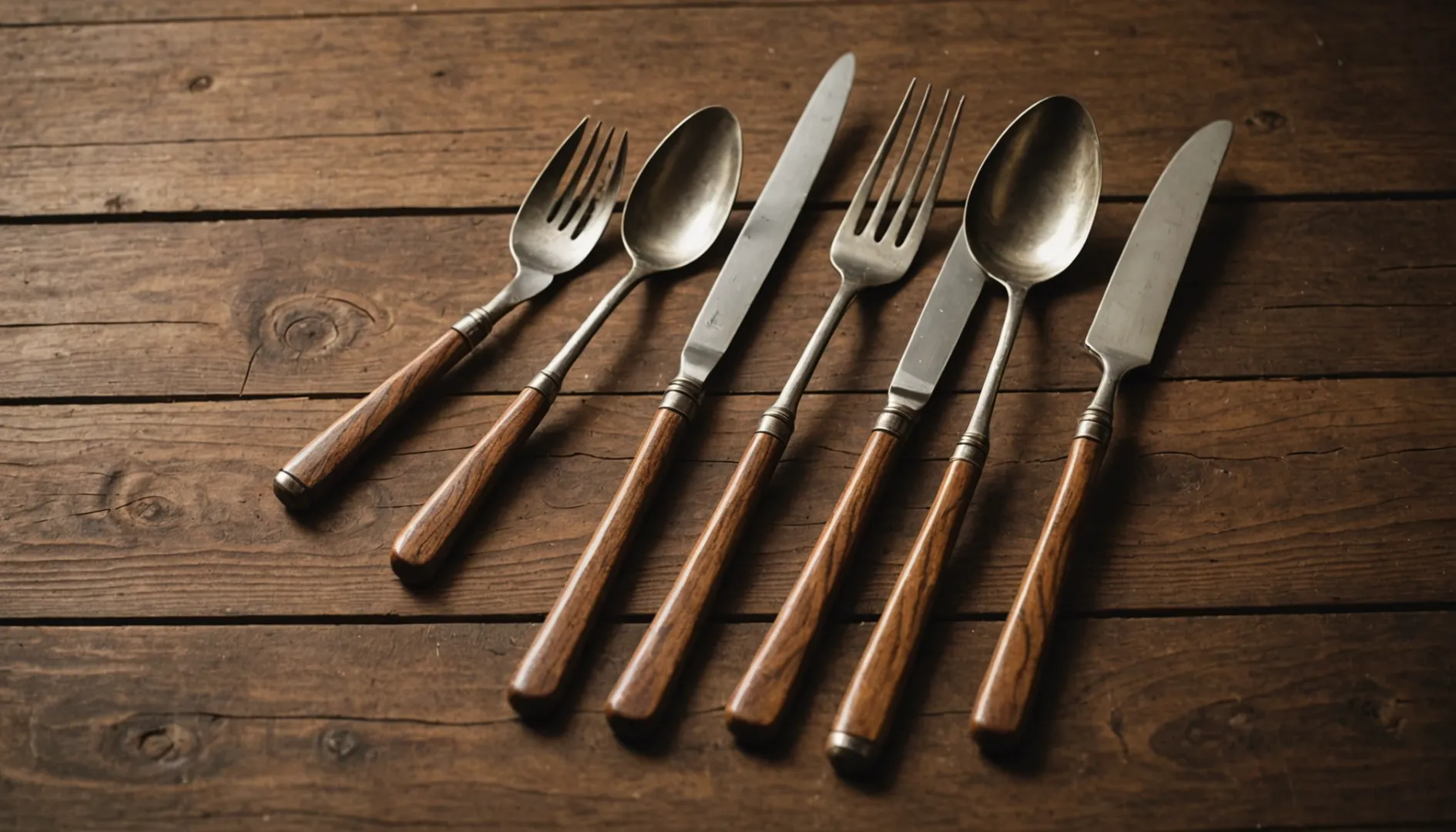
As the world goes green, finding top-notch eco-friendly cutlery suppliers is more crucial than ever. Curious about who leads the pack in China?
China hosts some of the leading manufacturers of disposable wooden cutlery, recognized for their sustainable practices and quality. These companies use eco-conscious materials and innovative techniques to meet the growing demand for green products.
When I first started exploring sustainable options for my business, I was overwhelmed by the number of choices. But as I dug deeper into the world of disposable wooden cutlery, I discovered that understanding a manufacturer's commitment to sustainability and product quality is key. By getting to know these manufacturers and their unique approaches, I found invaluable insights that helped me forge strong partnerships. Now, let's dive into what makes these Chinese manufacturers stand out in the eco-friendly cutlery market.
Wooden cutlery absorbs moisture more than plastic.True
Wood is porous, making it more prone to moisture absorption than plastic.
Bamboo cutlery has a higher environmental impact than wooden.False
Bamboo regenerates faster, making it more sustainable than wood.
What Criteria Make a Manufacturer a Top Choice?
Ever find yourself staring at a sea of manufacturers, unsure which one will truly deliver on your dreams? Let me guide you through this maze.
The best manufacturers are those that shine in quality assurance, embrace sustainable practices, comply with regulations, and offer adaptable production capabilities.
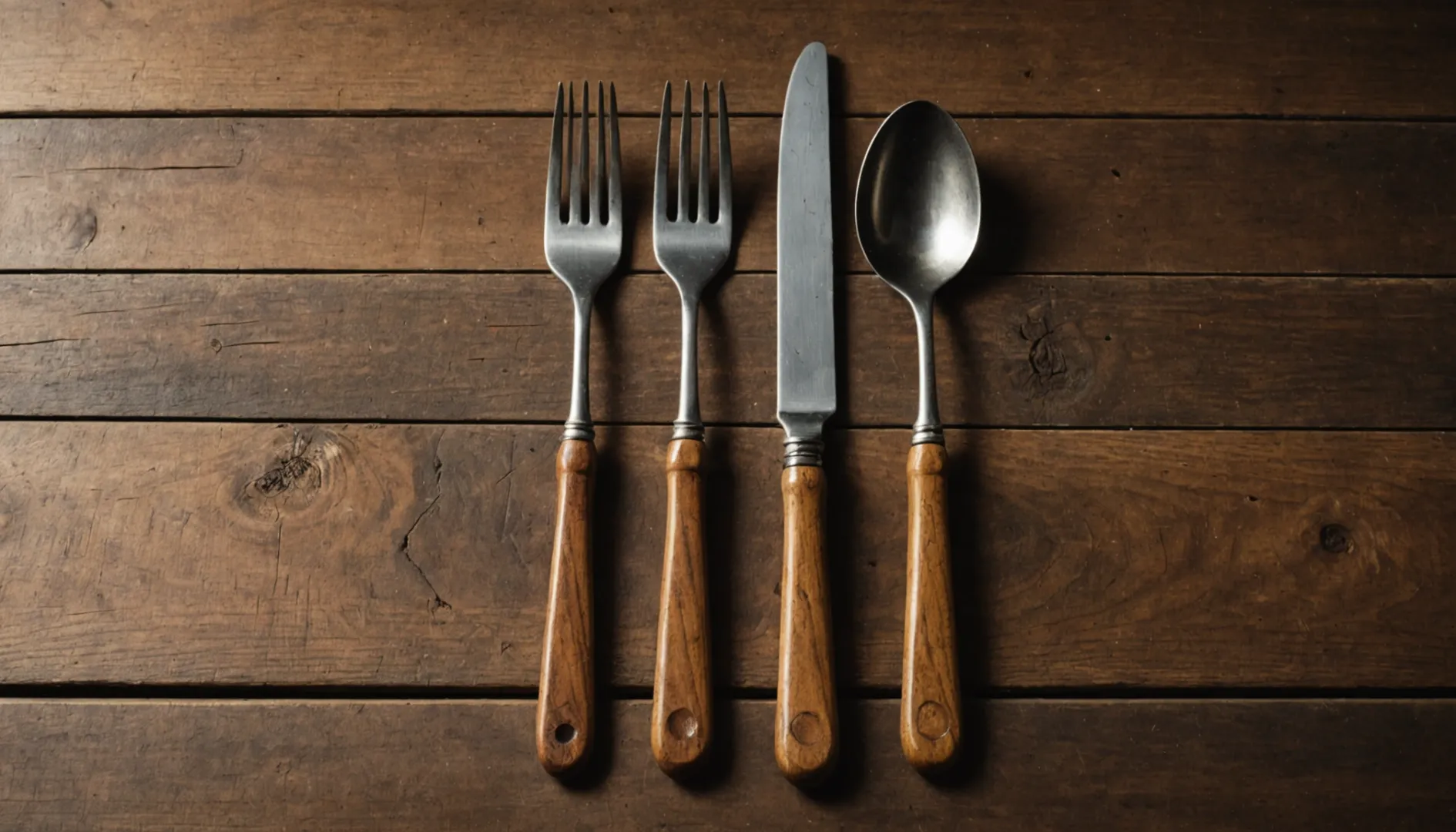
Quality Assurance
When I first embarked on finding the perfect manufacturer, quality assurance was my north star. I remember visiting a factory that boasted ISO 9001 certification. It was like discovering a treasure trove of reliability. Knowing that they had rigorous quality control processes reassured me that every product would not only meet but exceed expectations. This dedication to quality is what builds trust with customers and bolsters brand reputation.
Sustainability Practices
Sustainability isn't just a buzzword for me—it's a guiding principle. I once toured a facility that sourced its materials from FSC-certified forests. The commitment to eco-friendly practices was palpable, from the renewable resources used to their meticulous waste reduction strategies. It's this kind of dedication that attracts environmentally conscious businesses looking to reduce their carbon footprint.
Compliance with Regulations
I learned the hard way that compliance with local and international regulations isn't something to overlook. On one occasion, I worked with a manufacturer who was always ahead of the curve, adapting swiftly to regulatory changes. This was especially crucial in industries with stringent safety standards, like food and pharmaceuticals. Ensuring compliance meant our products were always market-ready.
Production Flexibility and Scalability
Flexibility and scalability were game-changers for me. There was a time when I needed to ramp up production quickly due to an unexpected demand surge. My manufacturer was able to accommodate without a hitch, handling both small and large orders seamlessly. This ability to adapt meant I could stay competitive and responsive to market demands.
Innovation and Technology Adoption
Staying ahead of the curve in a competitive market requires embracing innovation and technology. I vividly recall visiting a manufacturer that had integrated advanced automation processes. The efficiency gains were remarkable, and it allowed them to offer cutting-edge solutions that gave my business a competitive edge.
Communication and Transparency
I've found that open communication is the backbone of a successful partnership. A manufacturer I worked with maintained clear and honest dialogue throughout the production process. This transparency built trust and ensured we were always aligned, from sourcing materials to final delivery. Technologies like blockchain further enhanced this trust by providing verifiable data on supply chain activities.
Reputation and Experience
Finally, reputation and experience were non-negotiables for me. A manufacturer with a strong track record brought invaluable insights and problem-solving skills. Checking reviews, testimonials, and case studies helped me understand their reliability and commitment to excellence.
Overall, choosing the right manufacturer isn't just about ticking boxes; it's about finding a partner who aligns with my values and business goals, from quality assurance1 to innovative communication strategies.
Wooden cutlery requires regular oiling to maintain longevity.True
Regular oiling prevents cracking and maintains the utensil's integrity.
Plastic cutlery is more eco-friendly than wooden cutlery.False
Wooden cutlery is biodegradable, unlike plastic, which takes centuries to decompose.
How Do Manufacturers Ensure Sustainability in Wooden Cutlery?
Imagine sitting at a picnic, admiring the serene surroundings while savoring a meal with wooden cutlery. Have you ever wondered how these seemingly simple utensils contribute to sustainability?
Wooden cutlery manufacturers ensure sustainability by responsibly sourcing wood, minimizing waste, and applying eco-friendly coatings. They often hold certifications like FSC and use technologies like blockchain for supply chain transparency.
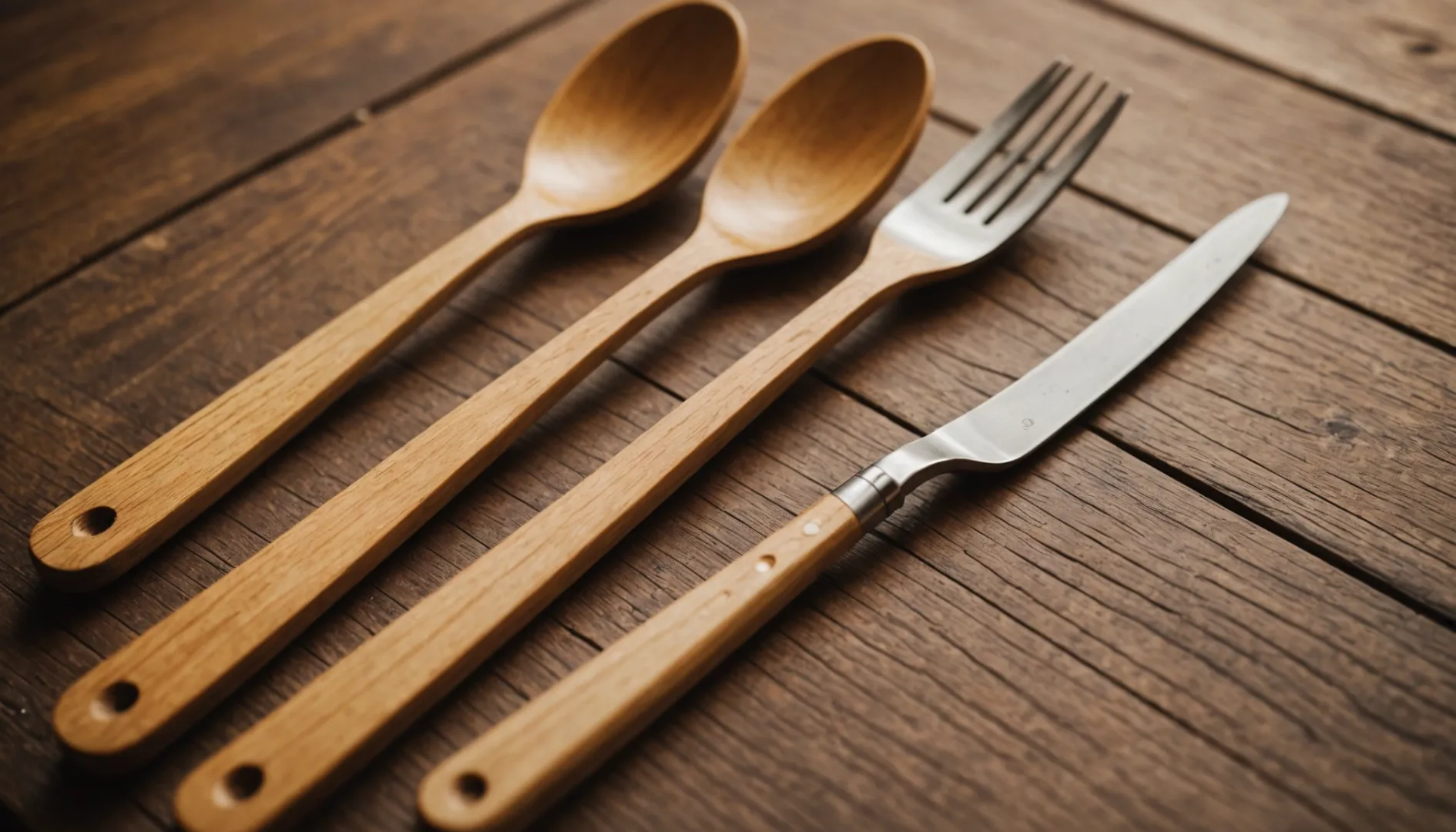
Sourcing and Material Selection
One sunny afternoon, I found myself pondering the origins of my wooden fork while enjoying lunch at a local eco-friendly café. Turns out, these manufacturers go to great lengths to source their materials responsibly. They often select wood from certified forests2, like those endorsed by the Forest Stewardship Council (FSC). This thoughtful selection helps preserve natural habitats and maintain biodiversity. Some manufacturers even choose fast-growing wood varieties that can be replanted swiftly, reducing their environmental footprint.
Production Techniques and Waste Reduction
I once visited a small workshop where wooden cutlery was crafted, and it was fascinating to see how every scrap was utilized. Many companies today adopt waste-reduction techniques to ensure that every bit of raw material is used efficiently. Offcuts and sawdust aren't discarded but are often repurposed into new products or used as biofuel. By implementing lean manufacturing principles, these companies enhance resource usage efficiency3 and reduce overall waste significantly.
Eco-Friendly Coatings and Treatments
Back at home, I often use wooden spoons coated with beeswax or plant-based oils. These natural, non-toxic coatings extend the life of the utensils and ensure they remain compostable once their lifecycle ends. It's reassuring to know that these food-safe oils not only maintain health standards but also provide a protective barrier against moisture.
Certifications and Standards
When I shop for wooden cutlery, I always look for eco-certifications like FDA, LFGB, and FSC. These marks of quality assure me that the products are safe for food contact and sustainably sourced. Some companies go a step further by conducting Life Cycle Analysis (LCA), providing measurable data on their environmental impact—a big plus for eco-conscious consumers4 like myself.
Supply Chain Transparency
Transparency is something I deeply value as a consumer. Technologies like blockchain have been game-changers, allowing me to trace the journey of the wood from forest to finished product. This practice not only builds trust but also ensures compliance with legal and environmental standards.
Innovations and Future Trends
The world of wooden cutlery is evolving with exciting innovations. Manufacturers are exploring compostable coatings to enhance biodegradability and experimenting with hybrid materials like bamboo fiber for added strength. As regulations tighten on single-use plastics, there's a noticeable shift towards designing products that can be reused multiple times before disposal.
Wooden cutlery is more hygienic than plastic.False
Wooden cutlery can absorb moisture, increasing bacterial risk if not maintained.
Bamboo cutlery is more sustainable than wooden cutlery.True
Bamboo grows faster and is easier to harvest, reducing environmental impact.
What Are the Latest Trends in Wooden Cutlery Manufacturing?
Imagine the warmth of holding a wooden spoon, knowing it’s both eco-friendly and crafted with care.
Wooden cutlery is embracing trends that prioritize sustainability, durability, and hygiene. Manufacturers are innovating with biodegradable materials and advanced coatings, like nano-coatings, to improve resistance to moisture and bacteria. These advancements, along with precise manufacturing techniques like laser cutting, ensure high-quality, sustainable products for conscious consumers.
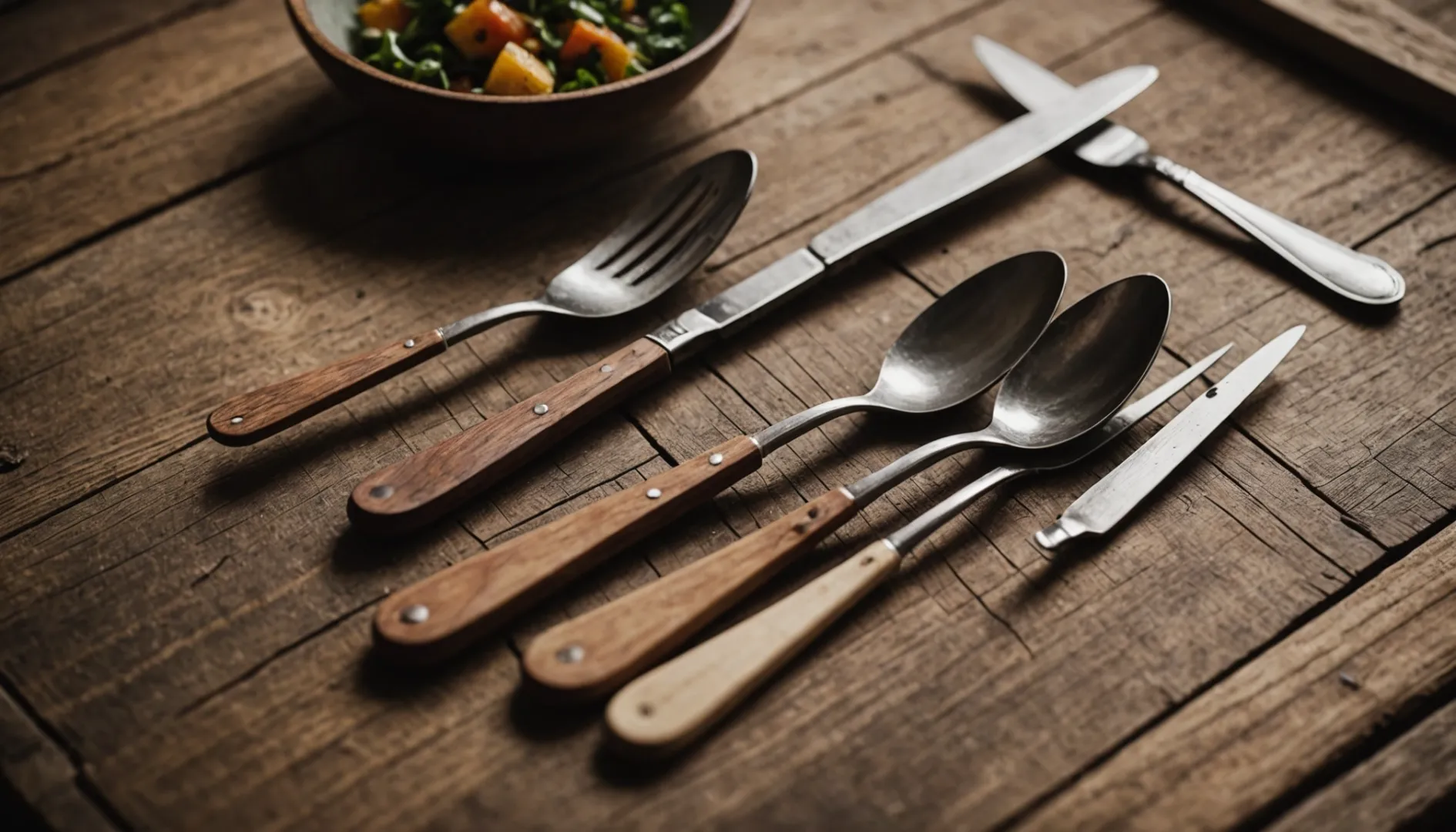
Embracing Sustainability
One of the most significant trends in wooden cutlery manufacturing is the emphasis on sustainability5. I remember the first time I held a piece of wooden cutlery. It felt like a small step towards a better planet. Today, companies are sourcing wood responsibly, often with certifications like FSC (Forest Stewardship Council), which guarantees ethical practices. Moreover, manufacturers are incorporating biodegradable coatings that decompose quickly, reducing environmental impact.
Advanced Coating Techniques
To address the porosity of wood, which can lead to moisture absorption and bacterial growth, manufacturers are developing innovative coating techniques. In my kitchen experiments, I've seen how easily wood can absorb moisture—a haven for bacteria. Natural oils and waxes are commonly used; however, the trend is shifting towards more advanced solutions like nano-coatings. These offer enhanced protection and longer-lasting resistance to moisture and bacteria compared to traditional methods.
Precision Manufacturing
Laser cutting technology is revolutionizing the way wooden cutlery is produced. I recently came across a laser-cut wooden fork that was a work of art. This technique allows for precise and consistent shaping of utensils, minimizing waste and improving efficiency. By optimizing the manufacturing process, companies can create more durable and aesthetically pleasing products that appeal to a broad range of consumers.
Multi-material Integration
Some manufacturers are experimenting with combining wood with other sustainable materials such as bamboo fiber. I love this trend because it not only boosts the strength and durability of the cutlery but also maintains its eco-friendly allure. Such innovation not only broadens the functional range of wooden cutlery but also attracts consumers looking for unique and robust alternatives to plastic.
Consumer Education
Educating consumers about proper care and maintenance is becoming an integral part of marketing strategies for wooden cutlery. A friend of mine swears by her wooden spoons but didn't know about the regular oiling they need. Companies are increasingly offering guidance on how to extend the life of their products through regular oiling and avoiding exposure to high heat or moisture. This approach not only ensures customer satisfaction but also enhances the product's sustainability appeal.
Traceability and Transparency
With growing consumer interest in product origins, traceability is becoming crucial. I’ve noticed a growing curiosity about product origins in my circle. Technologies like blockchain are being explored to provide transparency in the supply chain, allowing consumers to verify that their cutlery is sustainably and legally sourced. This transparency fosters brand trust and aligns with the rising demand for ethical products.
Market Positioning
As regulations tighten around single-use plastics, wooden cutlery is gaining traction as a viable alternative. Brands are highlighting features like biodegradability and lack of harmful additives in their marketing campaigns—especially effective in eco-conscious regions like Europe and North America.
These trends indicate a dynamic shift towards more sustainable, efficient, and consumer-friendly practices in the wooden cutlery industry. As innovation continues, manufacturers are likely to explore new materials and technologies to further enhance their offerings. This evolving landscape presents opportunities for growth and differentiation within an increasingly competitive market space.
Wooden cutlery requires frequent oiling.True
Regular oiling prevents cracking and maintains wooden cutlery's integrity.
Wooden cutlery is less hygienic than plastic.False
With proper care, wooden cutlery can be as hygienic as plastic alternatives.
What are the benefits of partnering with Chinese suppliers?
Ever wondered how linking up with Chinese suppliers can transform your business game?
Partnering with Chinese suppliers can significantly enhance a business's efficiency and profitability by reducing manufacturing costs, offering a broad product range, and providing access to advanced technologies. These collaborations open doors to new markets and improve overall operational capabilities.
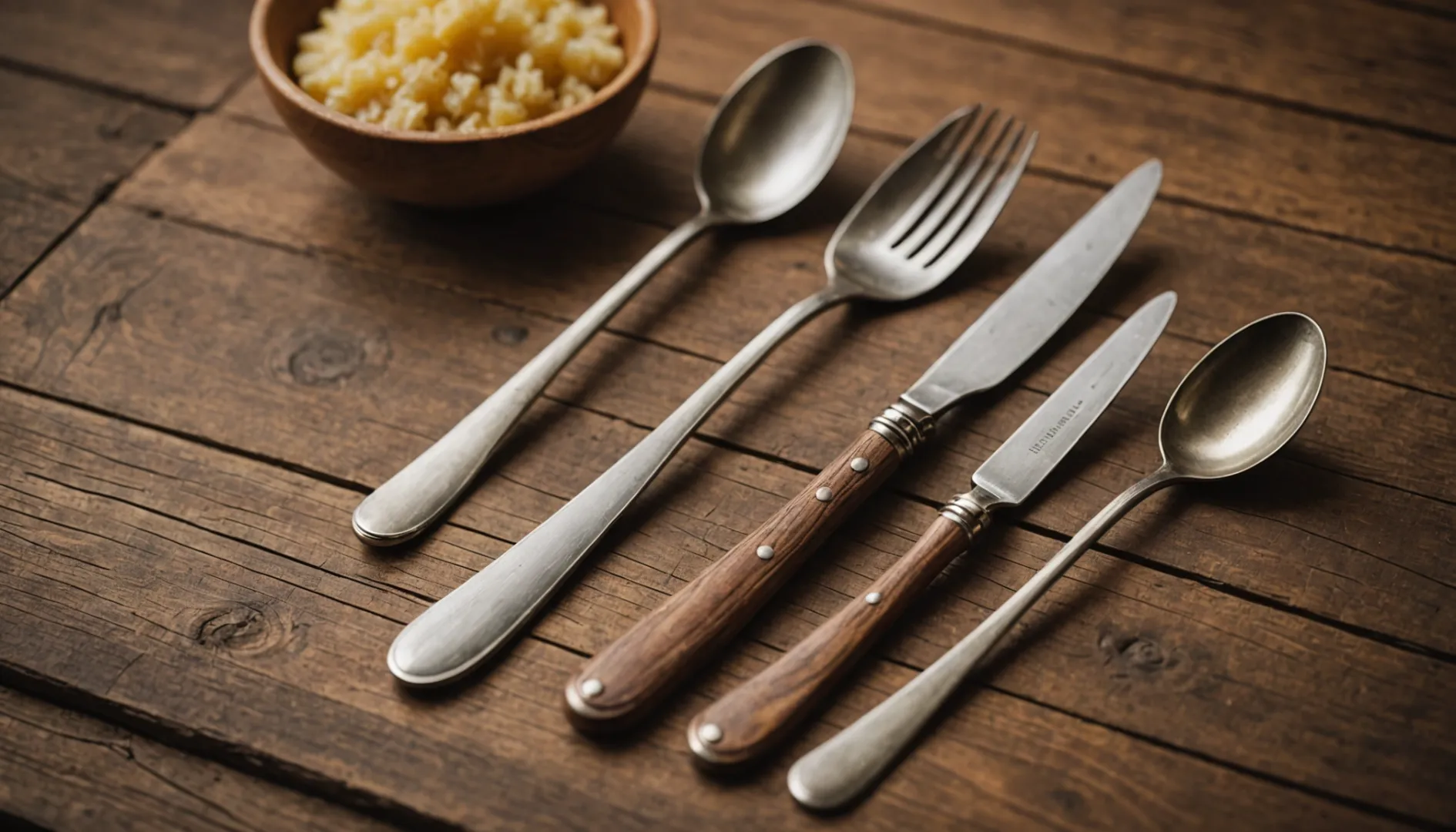
Cost Efficiency and Competitive Pricing
I remember the first time I considered working with a Chinese supplier—it was a game-changer. The cost savings were undeniable, thanks to China's massive production capabilities. Imagine being able to purchase products at competitive prices6 because of the economies of scale they offer! The lower labor costs in China were a bonus, allowing me to pass on these savings to my customers without cutting corners.
Diverse Product Range
When I was looking to diversify my product line, Chinese suppliers seemed like the perfect partners. They offered an incredible variety of products—from electronics to textiles—which meant I could adapt swiftly to market trends. It felt like having a treasure chest of options that kept my business fresh and exciting.
Advanced Manufacturing Technologies
Working with Chinese suppliers gave me access to cutting-edge technology I never imagined possible. China’s investments in advanced manufacturing have propelled them to the forefront in industries like electronics and machinery. Collaborating with them meant my products could benefit from state-of-the-art facilities and enhanced efficiency7.
Strategic Global Market Access
China's strategic location and robust logistics network were invaluable for expanding my market reach. Partnering with Chinese suppliers helped distribute products globally more efficiently, opening up opportunities in the vast Asian markets and beyond. It felt like I had a partner who understood global dynamics and could help my business navigate them smoothly.
Navigating Cultural and Business Practices
At first, understanding Chinese business culture seemed daunting. However, building relationships based on trust led to some of the most rewarding partnerships I've ever had. Engaging experienced intermediaries helped bridge language barriers and cultural differences, ensuring smoother negotiations and paving the way for sustainable growth8. These connections became more than business transactions; they turned into friendships that enhanced my global perspective.
Wooden cutlery is more hygienic than plastic.False
Wooden cutlery can harbor bacteria if not properly maintained.
Bamboo grows faster than wood for cutlery production.True
Bamboo regenerates quickly, making it more sustainable than wood.
Conclusion
Explore the top 10 disposable wooden cutlery manufacturers in China, focusing on their sustainability practices, quality assurance, compliance, and innovative techniques that cater to eco-conscious consumers.
-
Understand why quality assurance is crucial for reliable products. ↩
-
Learn how FSC ensures responsible forest management. ↩
-
Discover how lean practices optimize resource usage. ↩
-
Explore how LCA provides data on environmental impact. ↩
-
Learn about cutting-edge sustainable practices transforming the industry. ↩
-
Explore how China's scale reduces costs for global businesses. ↩
-
Discover cutting-edge technologies enhancing product quality. ↩
-
Learn strategies for fostering long-term partnerships. ↩

